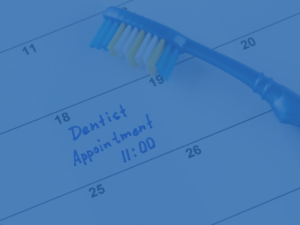Dehydration can actually cause cavities and, if left improperly treated, can eventually lead to gum disease. That’s a bold claim, but it’s true.
But how?
Well, it all starts with saliva.
And whether you live in here in Utah, to our south in Arizona, east in Colorado, or in pretty much any other climate, your child could be at risk of tooth decay – all simply because they are dehydrated.
The Symptoms of Dehydration
How do you tell if your child is dehydrated? The first signs or symptoms are fairly easy to spot. They are:
- Extreme thirst
- Dry mouth and/or tongue
- Sunken eyes or cheeks
- Irritability
- No tears when crying
- Infrequent urination
- Dark urine
- Tooth sensitivity
- Tender gums
Dehydration can also rear its ugly head in the form of dry skin. It’s important to pay attention to these symptoms and address them before they get worse and cause more permanent issues.
How Does Dehydration Affect Healthy Teeth?
When some people think of dehydration, they consider it to simply be a lack of water, but there’s more to it than that. When we sweat, we lose not just water, but minerals and electrolytes like potassium, magnesium, calcium and chloride.
Replenishing the lost water and nutrients found in sweat is vital to maintaining optimum hydration.
Our society is full of drinks and commercials telling us that we need to stay hydrated. Gatorade, Vitamin Water, and even certain fruit drinks now boast about how well they help you “hydrate”.
So, it’s clear that hydration is important, but what’s actually happening in the mouth and in the body when we get dehydrated, and how does it affect our teeth?
Well, healthy mouths are full of saliva, which helps move debris away from the teeth, breaks down food and carries essential minerals to the teeth. When harmful bacteria builds up in between and on the teeth, they begin to break down and decay.
The breakdown of a tooth can also occur when essential minerals such as calcium are absent. Some foods that we eat or other substances that we put in the body can make your body use more minerals than you would normally, and thus deplete your body of the adequate stores faster than usual.
After years of neglect, dehydration, or improper care of the teeth, not just tooth decay can be present, but gum disease can begin to show. And by then, it can be too late for prevention, and require extensive, focused treatment.
Of these known causes, dehydration is the most overlooked but quite possibly, the easiest to prevent. But how?

Preventing Dehydration For Optimal Dental Hygiene
How can you prevent dehydration?
Drinking enough water, consuming foods rich in minerals and vitamins, and ensuring that you replenish whatever was lost in a workout or other strenuous activity.
Yes, you probably already knew all that.
But, there are also signs that you can look for to make sure that you can spot dehydration and take a more preventative approach. If you workout with any frequency, you are probably already aware of most of the telltale signs of dehydration, but some of you may need a refresher. So here’s a brief list of what to look for:
- Fatigue
- Dry mouth
- Clammy skin
- Nausea
- Headache
- Inability to focus
- Irritability
There are more, but if your child is exhibiting any of these symptoms, you can offer them some water, electrolytes, Pedialyte, or even lemonade or coconut water. Whatever your preference, all you are trying to do is to replenish what was lost. And it can be as simple as having them take salt and potassium tablets.
Prevention, prevention, and more prevention. That’s the real answer. We at Orem often stress this. It’s all about preventative dental care.
But knowing what signs to look out for and what to do if you see those signs can help you prevent poor gum health throughout your child’s lifetime. We have all heard about the importance of developing good habits – especially as it relates to brushing and flossing. But, there is another contributing factor that gets overlooked. It’s hydration. And simply being adequately hydrated can do more than just preventing headaches and muscle spasms.
It can prevent cavities.
The truth is, when we eat, food is chewed and broken down in the mouth. Saliva helps to not only process the food, but to lubricate and neutralize acidity. We need to make sure that that saliva is there, and is doing its job.
What To Do If You Suspect That Your Child Has Cavities
As I said, chronic dehydration can lead to white spots on the teeth, cavities, and eventually, to gum disease. No one wants that to happen. especially to our children.
But, we do know that the majority of dental problems occur when your child has poor hygiene. This can refer to poor or infrequent brushing, failure to clean in between teeth, poor diet, or even trauma to the teeth.
Again, dehydration can also play a significant role in your child’s overall gum health, and it’s not regularly discussed.
Without the saliva needed to lubricate the throat and gums, bacteria can remain in the mouth, and because of saliva’s neutralizing agent on acids, the mouth can become more acidic, and thus be the ideal home for gum deteriorating bacteria to thrive.
It’s important to take action right away if you see any of these warning signs.
If you would like our help, or to schedule an examination where we can take a close look and examine your child’s teeth and look for signs of dehydration, I urge you to call us at (801) 802-7200 now.






